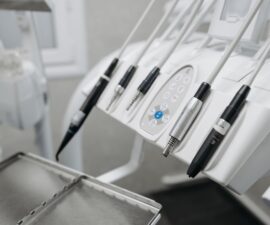A healthy pet is a happy pet. And no aspect of your pet’s health is often overlooked than dental health. Dental care is an essential factor in ensuring your furry companion’s longevity. But how can you maintain your pet’s dental health at home without breaking the bank or invading their personal space? Here’s a step-by-step guide.
The Significance of Dental Health in Pets
Dental health is paramount for pets, just as it is for humans. Proper dental care plays a significant role in maintaining our furry companions’ overall health and well-being. Here are some key reasons highlighting the significance of dental health in pets:
- Preventing Oral Diseases: Regular dental care, including brushing and professional cleanings, helps prevent oral diseases in pets. Dental diseases can lead to issues such as gum inflammation (gingivitis), periodontal disease, tooth decay, and tooth loss. These conditions can cause pain and discomfort for pets and may even lead to more severe health problems if left untreated.
- Improving Overall Health: Oral health is closely linked to a pet’s health. Dental problems can contribute to systemic issues, affecting vital organs such as the heart, liver, and kidneys. Bacteria from dental infections can enter the bloodstream and spread to other body parts, potentially leading to serious health complications.
- Reducing Bad Breath (Halitosis): Foul-smelling breath, known as halitosis, is a common sign of dental problems in pets. Proper dental care, including regular brushing and dental treats, can help freshen their breath and improve their oral hygiene.
- Enhancing Quality of Life: Healthy teeth and gums promote better eating habits and nutrition. Pets with dental pain or discomfort may have difficulty chewing their food, leading to reduced appetite and weight loss. By maintaining good dental health, pets can enjoy their meals and overall quality of life.
- Preventing Tooth Loss: Regular dental care can help prevent tooth loss in pets. Losing teeth can affect their ability to eat, chew toys, and enjoy playtime.
- Reducing the Need for Dental Procedures: Proactive dental care, such as regular brushing and dental cleanings, can help reduce the need for more invasive and costly dental procedures later in life.
- Detecting Dental Issues Early: Routine dental check-ups by a veterinarian allow for the early detection of dental problems. Identifying issues in their early stages allows for timely treatment and helps prevent further complications.
- Strengthening the Bond with Your Pet: Regular dental care involves interaction and bonding with your pet. Brushing their teeth and providing dental treats can be a positive and enjoyable experience for you and your furry friend.
- Increasing Longevity: Good dental health is linked to overall well-being, contributing to your pet’s longer and healthier life.
- Promoting Good Pet Ownership: Proper dental care is essential to responsible pet ownership. By prioritizing your pet’s oral health, you ensure their happiness and comfort.
Maintaining Pet’s Dental Health
1. Regular Brushing
- Brush your pet’s teeth regularly to prevent plaque and tartar buildup.
- Use a soft-bristled toothbrush and toothpaste designed for pets to avoid harming their gums.
- Introduce toothbrushing gradually, making it a positive and rewarding experience for your pet.
- Aim to brush your pet’s teeth at least two to three times a week to maintain oral hygiene.
2. Dental Treats and Toys
- Provide dental treats and toys that promote dental health while your pet chews.
- Dental treats are designed to reduce plaque and tartar buildup and can freshen your pet’s breath.
- Opt for dental toys that encourage chewing, as this can help mechanically clean their teeth.
- Ensure the treats and toys are appropriate for your pet’s size and chewing habits to prevent choking hazards.
3. Dental Wipes or Pads
- Consider using dental wipes or pads if your pet is uncomfortable with toothbrushing.
- These wipes or pads are designed to clean your pet’s teeth and gums gently.
- Wipe your pet’s teeth using the pads, focusing on areas where plaque may accumulate.
4. Water Additives
- Some water additives can help reduce plaque and freshen your pet’s breath.
- These additives are added to your pet’s water bowl and provide continuous dental care while they drink water.
- Follow the recommended dosage and consult your veterinarian before using water additives.
5. Dental Rinses and Sprays
- Dental rinses and sprays designed for pets can complement regular dental care.
- These products may help reduce bacteria and plaque in your pet’s mouth.
- Use them as directed, and avoid spraying directly into your pet’s throat to prevent choking.
6. Regular Check-Ups
- Schedule regular dental check-ups with your veterinarian.
- During these visits, the vet will examine your pet’s teeth and gums, thoroughly clean if necessary, and address any dental issues.
- Professional dental cleanings may be recommended to remove tartar and plaque that cannot be eliminated through at-home care.
- Visiting a veterinary dentist for dogs or other pets is crucial to ensuring your pet’s dental health. These professionals are trained to detect early signs of dental disease before they become severe. Regular dental check-ups can help your pet have healthy, strong teeth and may save you expensive bills in the future.
7. Balanced Diet
- Provide your pet with a balanced diet that supports their overall and dental health.
- Avoid excessive sugary treats, as they can contribute to dental problems.
- Consider dental-specific diets that help control tartar and plaque formation.
8. Observe for Signs of Dental Issues
- Be attentive to signs of dental problems, such as bad breath, swollen or bleeding gums, excessive drooling, difficulty eating, and pawing at the mouth.
- If you notice these signs, consult your veterinarian for evaluation and treatment promptly.
- Pet allergies, especially mouth or gum, can cause discomfort, leading to decreased appetite, difficulty eating, and poor dental health. If you have a feline companion diagnosed with allergies, ensuring proper cat allergy treatment is essential. Besides reducing allergy symptoms, it may also result in a healthier mouth for your pet.
9. Start Early
- Begin dental care and oral hygiene practices early in your pet’s life.
- Starting young can make it easier for your pet to accept toothbrushing and other dental care routines.
- Puppy and kitten oral health care can set the foundation for a lifetime of good dental hygiene.
10. Stay Consistent
- Consistency is crucial to maintaining your pet’s dental health.
- Incorporate dental care into your pet’s daily routine, and be patient and persistent in establishing good habits.
- Regular and consistent dental care will yield better results in preventing dental issues and maintaining oral health.
Another vital aspect of your pet’s health is ensuring regular wellness vet exams. These exams are comprehensive checks that cover every aspect of your pet’s health—from their diet and weight management to their kidneys and other organs. You can learn more about the importance of these exams by asking your trusted veterinarian or by checking on their website. Ensuring your pet is overall healthy can greatly contribute to its dental health.
Conclusion
Maintaining your pet’s dental health at home may seem daunting. However, it can be easily achieved with patience, routine, and the right tools. Remember that your efforts in this area always result in a healthier, happier pet. Do not forget the importance of regular check-ups with your vet, attention to allergies, and maintaining a good diet and hydration for your pet. Your effort contributes to your beloved companion’s long and healthy life. Your pet’s beautiful, healthy, and pain-free smile will be worth the effort.











